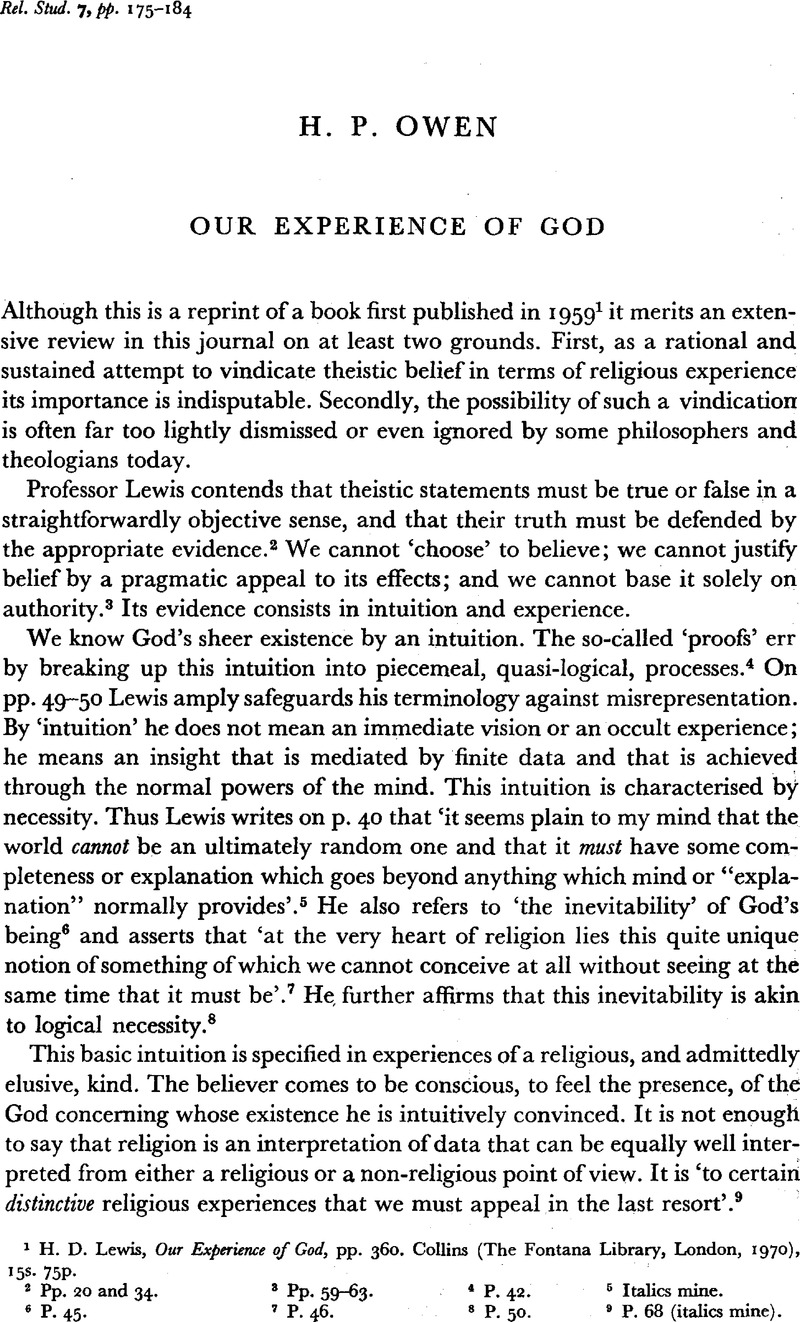No CrossRef data available.

page 175 note 1 Lewis, H. D., Our Experience of God, pp. 360. Collins (The Fontana Library, London, 1970), 15s. 75p.Google Scholar
page 175 note 2 Pp. 20 and 34.
page 175 note 3 Pp. 59–63.
page 175 note 4 P. 42.
page 175 note 5 Italics mine.
page 175 note 6 P. 45.
page 175 note 7 P. 46.
page 175 note 8 P. 50.
page 175 note 9 P. 68 (italics mine).
page 176 note 1 P. 129.
page 176 note 2 Ibid.
page 176 note 3 P. 130.
page 176 note 4 P. 132.
page 176 note 5 The numbering and arrangement of these points are mine.
page 176 note 6 P. 51.
page 176 note 7 P. 135.
page 176 note 8 P. 353.
page 177 note 1 Pp. 142–3.
page 177 note 2 P. 69.
page 177 note 3 P. 70.
page 177 note 4 P. 64.
page 177 note 5 Chaps 8 and 9 passim.
page 178 note 1 P. 203.
page 178 note 2 P. 255.
page 178 note 3 P. 258.
page 178 note 4 Pp. 265–7.
page 178 note 5 P. 275.
page 178 note 6 P. 278.
page 178 note 7 P. 295.
page 178 note 8 P. 306.
page 178 note 9 P. 301.
page 178 note 10 P. 310.
page 178 note 11 P. 314.
page 178 note 12 P. 319.
page 179 note 1 Pp. 323–6.
page 179 note 2 P. 334.
page 179 note 3 P. 326–7.
page 179 note 4 Pp. 323–3.
page 179 note 5 P. 331
page 179 note 6 P. 152.
page 179 note 7 Pp. 284–5.
page 179 note 8 Pp. 303–4.
page 179 note 9 P. 308.
page 182 note 1 I detect the same ambivalence in his later work Philosophy of Religion in the Teach Yourself series. There, having affirmed that the theist rests his belief on the intuition that there must be a transcendent explanation of finite being (pp. 141–4)Google Scholar, he proceeds to speak of a ‘sense of the Unconditioned’ (p. 144)Google Scholar, ‘the sense of a Reality altogether beyond the world’ (p. 150) which he illustrates from OttoGoogle Scholar, and ‘the sense of God's transcendence’ (p. 151) which he illustrates from the Old Testament. He passes quickly from the claim to be intuitively certain that the world must have a cause to the claim to be intuitively certain of God as a living reality in and beyond the world. But it is the latter claim that he emphasises.Google Scholar
page 183 note 1 In fact Lewis later concedes that such implications are logically possible and compatible with ethical autonomy (Philosophy of Religion, p. 262).Google Scholar